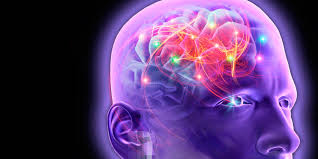
It is a neurological disorder(central nervous system disorder),causing periods of unusual behavior or seizuressensations and sometimes loss of consciousness due to disruptedof nerve cell activity in the brain.
Epilepsy
It is a neurological disorder(central nervous system disorder),causing periods of unusual behavior or seizuressensations and sometimes loss of consciousness due to disruptedof nerve cell activity in the brain.
Symptoms:
· Temporary confusion
· A staring spell
· Uncontrollable jerking movements of the arms and legs
· Loss of consciousness or awareness
· Psychic symptoms
Causes:
· Genetic influence
· Head trauma.
· Brain conditions. Such as brain tumors or strokes
· Infectious diseases. Such as meningitis, AIDS and viral encephalitis
· Prenatal injury. Such as an infection in the mother, poor nutrition or oxygen deficiencies.
· Developmental disorders. Such as autism and neurofibromatosis.
Risk factors:
· Age. The onset of epilepsy is most common during early childhood and after age 60, but the condition can occur at any age.
· Family history
· Head injuries. You can reduce your risk by wearing a seat belt while riding in a car and by wearing a helmet while bicycling, skiing, riding a motorcycle or engaging in other activities with a high risk of head injury.
· Stroke and other vascular diseases. Stroke and other blood vessel (vascular) diseases can lead to brain damage that may trigger epilepsy.
· Dementia
· Brain infections. Infections such as meningitis, which causes inflammation in your brain or spinal cord, can increase your risk.
· Seizures in childhood.
Complications:
· Falling. You can injure your head or break a boneif you fall during a seizure.
· Drowning.During bathing orswimming you're drown15 to 19 times compare to healthy populationif you have epilepsybecause of the possibility of having a seizure while in the water.
· Car accidents.
· Pregnancy complications.
· Status epilepticus.
· Sudden unexplained death in epilepsy (SUDEP).
· Emotional health issues. People with epilepsy are more likely to have depression, anxiety and, in extreme cases, suicide.
Diagnosis:
· Neurological examination. Diagnose your condition by mental function,motor abilities, behavior and other areas by this the type of epilepsy may be determined.
· Blood tests. Blood samples will be collectto diagnose the genetic conditions,signs of infections or other conditions that may be associated with seizures.
Treatment:Common epilepsy medications include:
Epilepsy, neurological disorder, seizures sensations